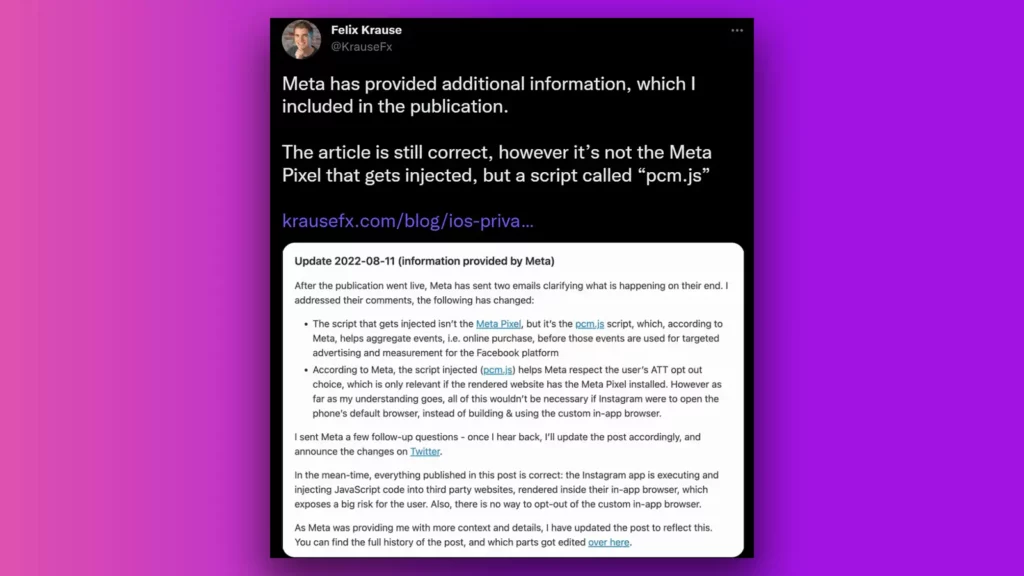News
Meta tracks you on Facebook and Instagram through in-app browsers
Meta will do anything to suck up that sweet, sweet user data.

When you’re browsing Instagram or Facebook, you’ll come across various links to different websites on the internet. Now, it has been revealed Meta (similar to TikTok) has the ability to track your activity, even on third-party websites.
A recent report from researcher Felix Krause shows how the company is able to do this. Essentially, Meta uses its own in-app dedicated browsers to track users.
See, when you tap on a link on Instagram or Facebook, the app doesn’t open that link with the Safari or Chrome app installed on your device.
Instead, it uses its own, unique web browser and injects its JavaScript tracking code into the URL.
“The Instagram app injects their tracking code into every website shown, including when clicking on ads, enabling them [to] monitor all user interactions, like every button and link tapped, text selections, screenshots, as well as any form inputs, like passwords, addresses, and credit card numbers,” says Felix Krause.
Meta responded to Krause, saying that this tracking code injection obeys users’ preferences of privacy. It says that this code only aggregates user data “before using it for targeted advertising or measurement purposes.”
But the fact remains that Meta can use this kind of code to gain personal information on Meta’s users. The real question is why is it necessary for Meta to have its own in-app browsers for Facebook and Instagram?
The apps could just as easily redirect users to their preferred browsers, like Safari and Google Chrome, when they click on links.

Safari already blocks all third-party cookies by default thanks to its recent privacy efforts. And Google has also been working to make Chrome more privacy-focused for its users.
But doing that would certainly give up some of Meta’s tracking control. And we all know by now that Meta and Zuckerberg aren’t really interested in giving up any of their control over their users.
Have any thoughts on this? Let us know down below in the comments or carry the discussion over to our Twitter or Facebook.
Editors’ Recommendations:
- Facebook brings back the chronological feed for your friends
- Instagram expands NFTs to over 100 countries
- Twitter is testing a new ‘Status’ feature that no one asked for
- TikTok owner ByteDance bought a hospital chain – here’s why

































